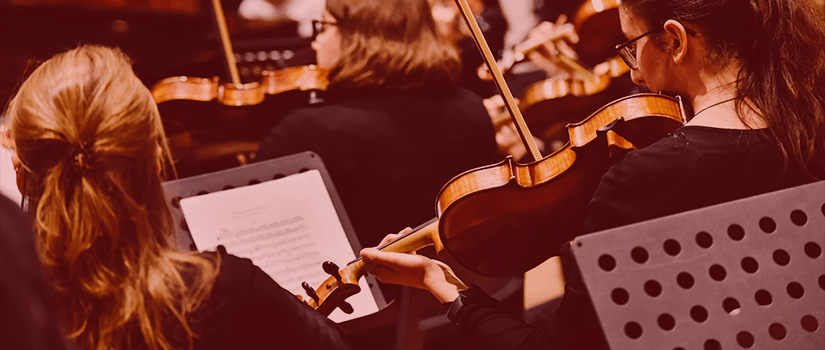Landmark Court Ruling As Royal Opera House Loses Appeal
 You may remember that early last year, I wrote a piece about the case of a viola player with the Royal Opera House, who claimed to have suffered irreparable hearing damage due to a condition known as “acoustic shock”, whilst rehearsing for a performance of Wagner’s famous Die Walkure. The man affected, Christopher Goldscheider, was sat in front of the brass section of the orchestra, when it is claimed the noise level reached a staggering 132dB. Mr Goldscheider’s case centred on the fact that the ROH failed to provide him with adequate hearing protection, which resulted in him suffering from so-called acoustic shock.
You may remember that early last year, I wrote a piece about the case of a viola player with the Royal Opera House, who claimed to have suffered irreparable hearing damage due to a condition known as “acoustic shock”, whilst rehearsing for a performance of Wagner’s famous Die Walkure. The man affected, Christopher Goldscheider, was sat in front of the brass section of the orchestra, when it is claimed the noise level reached a staggering 132dB. Mr Goldscheider’s case centred on the fact that the ROH failed to provide him with adequate hearing protection, which resulted in him suffering from so-called acoustic shock.
The case, which began in 2012, came to a conclusion last year when the High Court ruled in favour of Mr Goldscheider, a ruling which to this day, is still unprecedented for two main reasons. The first being that it marked the first time a UK judge had examined, in detail, the responsibilities that organisations like the Royal Opera House have to their musicians and performers regarding health and safety legislation. The second reason this ruling was so important is that it marked the first time that acoustic shock had been recognised as a condition that can be compensated by a court.
When the ruling in 2018 was made, the Royal Opera House was reported as being “disappointed” with the result, so much so they launched an appeal with the UK Court of Appeal, which on the 17th April 2019, they lost.
According to the BBC, the Court of Appeal “unanimously” ruled that the ROH had failed to take steps to protect Mr Goldscheider’s hearing and that it had failed to implement noise controlling measures until after his injury. In its appeal, the ROH claimed that by the very nature of the work its musicians were doing and the music they were playing, some loss to hearing was inevitable and therefore justifiable. The Court of Appeal rejected this claim.
The rejection of the appeal made by ROH marks a significant change in the way cases of this nature will be dealt with moving forward. For many in the profession, there remains some scepticism over the validity of the claims that acoustic shock is what caused Mr Goldscheider’s injuries. The UK Health and Safety Executive describe acoustic shock as a condition that has connections “with incidents involving exposure to short duration, high frequency, high intensity sounds through a telephone headset”. The definition continues to state:
“It has not been established whether the reported symptoms are caused directly by exposure to these unexpected sounds. There is no clear single cause of these incidents, but one cause may be interference on the telephone line”. – http://www.hse.gov.uk/noise/acoustic.htm
Now that the precedent has been set, it is likely that many more cases similar to Mr Goldscheider’s will be brought before courts across the country. It is thought that this precedent could be dangerous, as the exact nature of acoustic shock and its causes are still not known, and no medical consensus has been reached. Many organisations like the ROH will be concerned that rulings in similar cases may go against them, on the basis of a condition that is not fully understood.
If anything, the case of Mr Goldscheider has highlighted the fact all employers are responsible for the safety and security of their employees, regardless of what industry they operate in, and that even the unlikeliest of organisations may suffer from noise issues. All businesses have a duty to control the noise levels in any working environment, whether that’s a call centre, a factory or, as we’ve seen, a concert hall. It also highlights something else quite important – the health and safety implications for people who attend concerts, gigs and other loud environments like bars and nightclubs. Whilst venues have no responsibility to people visiting them, it’s important to highlight that everyone working or enjoying a loud environment should take the necessary steps in order to protect themselves against conditions like tinnitus and hyperacusis, whether that’s by using earplugs or simply standing away from speakers and amplifiers.
On the ruling of the court, Mr Goldscheider said:
“We all want to find a way to participate and share in the experience of live music in a safe and accessible way and I hope that the guidance which the Court of Appeal has given in my case will help others”.
Jaymee-lee Tolliday
Latest posts by Jaymee-lee Tolliday (see all)
- Turning Down the Volume: How the Trojan Noise Nuisance Recorder can help create a quieter world - 13th February 2024
- Festive Opening Hours 2023 - 6th December 2023
- Award of Excellence for Cloud-Based Monitoring Solutions 2023! - 20th November 2023
